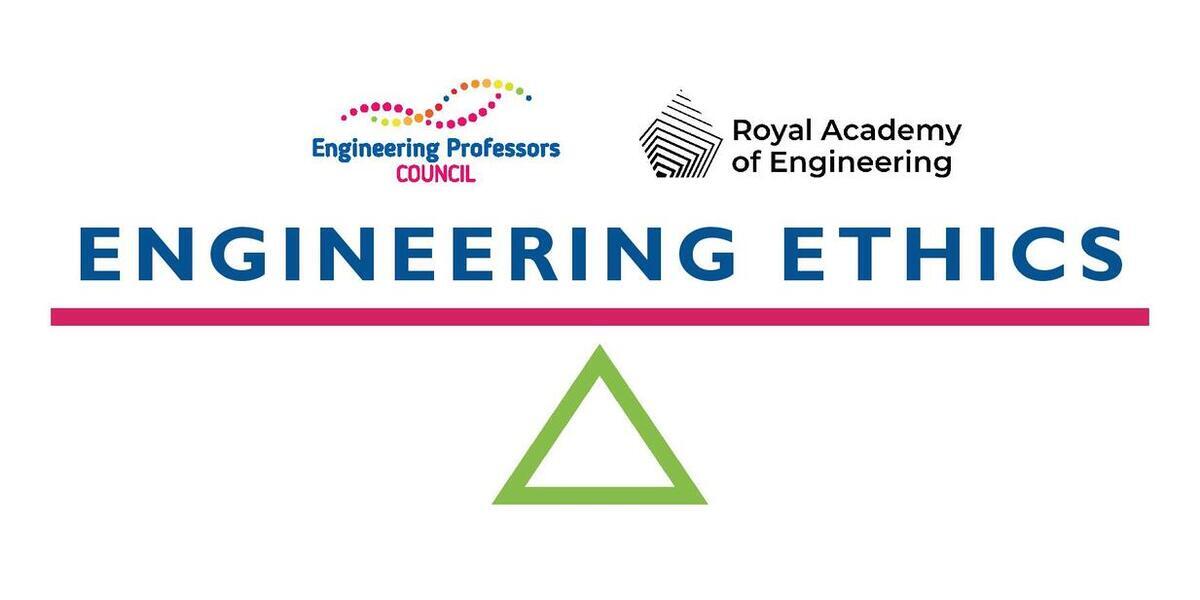EPC President Prof Mike Sutcliffe introduces an ambitious new initiative to ensure engineering education is a force for good: the EPC’s Engineering Ethics toolkit, produced in partnership with the Royal Academy of Engineering.
Engineering can have significant impact on society and the environment, both positive and negative. Harnessing the power of engineering to build a sustainable society that works for everyone require us to navigate complexity, uncertainty and challenging ethical issues.
Understanding ethical issues and behaving in an ethical manner underpins other behaviours such as inclusivity and sustainability, ensuring that individual practitioners, professions and organisations are globally responsible. To maximise positive impact these behaviours must become instinctive – golden threads running through everything that engineers think and do.
The EPC Board considered its own ethical responsibility – including representing our members’ views, supporting good practice and as an organisation – at its retreat in January 2020. This led to the clear action for the EPC to promote engineering ethics more proactively and adopt clear ethical positions. A key aspect of this is enabling the embedding of ethical best practice into the UK engineering higher education curriculum through creation of an ‘Engineering Ethics Toolkit’.
There is growing advocacy for bringing engineering ethics to the fore in engineering programmes – alongside technical skills – as we equip future engineers with the skills and mindset they need to succeed. At the policy level, this is evident in three general areas:
- The UK Standard for Professional Engineering Competence and Commitment (UK-SPEC; 4th edition) and accreditation bodies identifying ethics as one of the core learning outcomes and competencies in accreditation documents;
- The inclusion of more descriptive competencies that expand on the understanding and practical application engineering ethics; and
- The Accreditation of Higher Education Programmes in engineering (AHEP, 4th edition) standards reflecting the importance of societal impact in engineering.
Today we are pleased to launch the first milestone in the development of the EPC’s Engineering Ethics toolkit – a range of case studies and supporting articles to help engineering educators integrate ethics content into their teaching.
This will allow engineering students to be able to identify ethical issues, exercise ethical thinking and use ethical judgement within their projects and coursework.
Producing this first phase of the toolkit has been a fabulous team effort – the high priority placed on creating this exemplified by remaining on track and producing a high-quality resource despite the challenges faced from Covid-19. Everyone has done an amazing job.
This would not have been possible without the generosity and support of the Royal Academy of Engineering, and the Engineering Council with whom they are partnering. As chair, Raffaella Ocone (Herriot Watt) is doing a wonderful job of guiding us – getting us off to a flying start with her previous trailblazing work on embedding ethics into the curriculum. And Sarah Jayne Hitt (formerly NMiTE) is doing an absolutely fabulous job of keeping us focussed, on track and producing high-quality resources informed by best practice.
This achievement is a wonderful example of how, as engineers, we work most effectively when we work together to design effective solutions – a team I enjoy working with and am proud to be a part of.
We hope you find these resources for embedding ethics into the curriculum useful. Do let us know how you get on and keep an eye out as we continue to expand these resources into a more comprehensive toolkit for engineering educators.
This blog is also available here.
Any views, thoughts, and opinions expressed herein are solely that of the author(s) and do not necessarily reflect the views, opinions, policies, or position of the Engineering Professors’ Council or the Toolkit sponsors and supporters.




